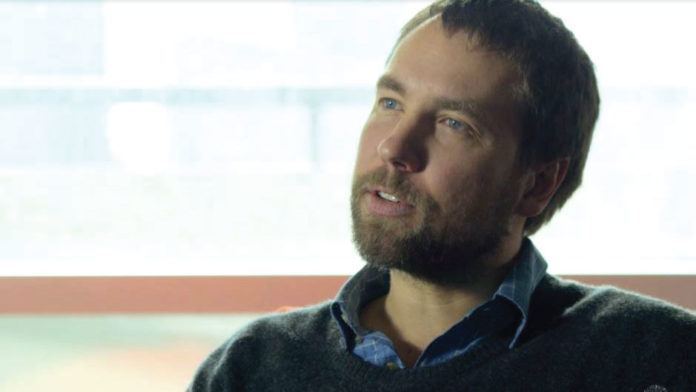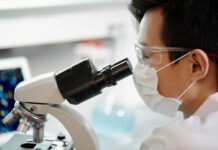Martin Krkosek is an Assistant Professor and Sloan Fellow in Ocean Science in the Department of Ecology and Evolutionary Biology at the University of Toronto. We asked him everything from what inspired him to become a researcher to what he is reading in hopes of giving you a better understanding of what goes on outside the lab for one of the best minds in Canadian research.
What inspired you to become a researcher?
Ever since I was a child I’ve wanted to save the world. I’ve always been fascinated by nature too, but in college, I was a poor biology student. But then I had a Eureka moment that the math classes I was good at were relevant to solving environmental problems. That turned out to be a perfect niche where I could apply my skills to problems in conservation biology and infectious disease.
What do you like most about your work?
The best part of my job is helping my students with their research projects, coming up with new ideas together, and the excitement of seeing the results of an experiment or model for the first time. We do a lot of marine biology fieldwork, and those experiences have been particularly formative for my students. Many life-long friendships have resulted and the community we have built is a very rewarding outcome of our work.
What do you envision in the future of your field?
Humanity is awakening to the fact that we need to achieve a sustainable coexistence with the ecosystems upon which we rely. My field of ecology and evolutionary biology does that science. Our work lays the foundations for things like food security and human health because processes like fisheries, pollination, and disease emergence are all fundamentally ecological and evolutionary problems. Our field will be nothing less than critical for the persistence of the human species on earth.
How will your research make a difference in people’s lives?
We are working on ways to improve sustainable fisheries and aquaculture by understanding and controlling disease dynamics. So, the salmon you eat may well have come from more sustainable systems due to our work, or the experience of fishing or whale watching may not have been possible without a science-informed management that conserves those species.
What advice would you give to young researchers?
Keep a book, write down your ideas, and persevere through your experiments. Many scientists do their greatest work when they are young. The energy and creativity of youth is a key ingredient to exciting research.
What do you consider your greatest achievement?
I maintain a 15 year (and counting) marine fieldwork project on juvenile salmon in BC. There is a research station called the Salmon Coast Field Station and a community of people that have grown out of this project. The experiences, community, and science that have emerged from this special place is a major highlight for me.
What do you read?
I very much enjoy Michael Ondaatje, Alistair MacLeod, and Tom Robbins.
What natural talent would you like to be gifted with?
I would like to play old time Appalachian fiddle music.
What’s on your iPod/CD collection/turntable?
Lots of Jerry Garcia, Django Reinhardt, and old time fiddle music.
If you could do any profession other than your own what would it be?
There is nothing else I would rather do, except perhaps to be independently wealthy and fund science and arts projects.
What do you like to do for fun?
Spending time with my family and wrestling with my 2 yr old son.









































